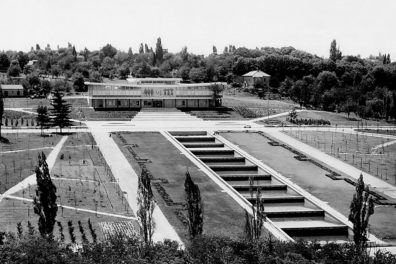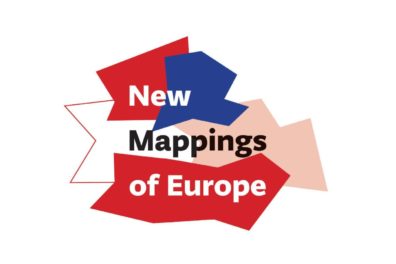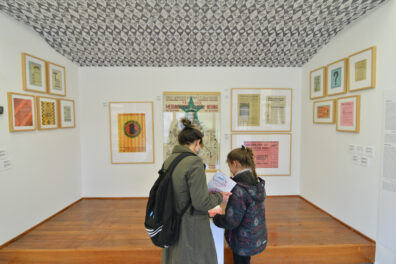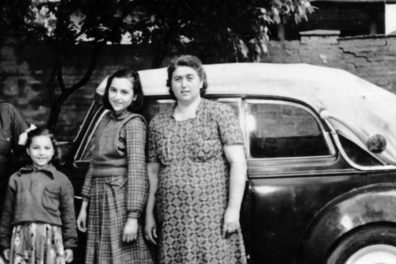OPTICALLY SUSPICIOUS IN THE MUSEUM OF YUGOSLAVIA
An exhibition entitled Optically Suspicious will be presented on March 5 at 1 pm. as part of the permanent exhibition of the Museum of Yugoslavia. It has been realized in cooperation of the curators of the Museum and the members of the Autonomous Cultural Centre Matrijaršija (Matriarchy). In addition to the exhibition, the audience can expect a diverse program that includes promotion of the publication of the same name, performance of one-act play and a cocktail reception. This event marks the Museum’s new cycle of interventions on the permanent exhibition, which will focus on the industrial heritage of Yugoslavia, previously themed within the current exhibition On Factories and Workers.
The exhibition intervention Optically Suspicious is the result of the research of the Museum’s Collection of Printed Material, which was realized in 2021 by the ACC Martijaršija (Matriarchy) in cooperation with the graphic workshop Kvaka. During the research process, a part of documents on concerts, matinees, dances and other cultural and artistic events of the Association of Graphic and Typographic Workers of Yugoslavia, mostly organized in the interwar period, was singled out. These materials testify to the specific models of self-organization and association of graphic workers of that time to develop networks of solidarity and fight for workers’ rights and better working conditions in order to protect their health and life.
“We have viewed the active work of graphic workers during the third and fourth decades of the 20th century as a paradigm of the labour movement and organizing in the spirit of the idea of the non-existence of boundaries between life, work and art. The evidence we found in the archives revealed a “familiar” world, which is close to us and which we recognize, a known fever, restlessness and an effort to organize life and work in a friendly and celebratory way”, the members of the ACC Martijaršija (Matriarchy)explain.
“The importance of the example of the Association of Graphic Workers lies in the intensity and inseparability of this struggle from their cultural and artistic activities and everyday life. The archival material testifies to their persistence in producing relationships through informal evening parties, and not only through protests, education and work. It also speaks of the will and strength to produce such interpersonal relationships that would meet the standards of the society to which they aspired”, the authors add.
In addition to the selected items from the Museum collection, the audience will be able to see works of art and accompanying art publications, which have been designed in response to everything the authors discovered during the research, but also as a supplement to what remained unknown about the life and work of graphic artists then and now.
Theoretical and artistic research, exhibition intervention and the book Optically Suspicious were realized during 2021 by members of the Autonomous Cultural Centre Matrijaršija (Matriarchy): Aleksandar Denić, Milica Ivić, Jovana Lutovac, Johanna Marcadé-Mot, Mileta Mijatović, Sofija Pašalić and Aleksa Vitorović in collaboration with project curators Simona Ognjanović and Marija Đorgović, as well as Veselinka Kastratović Ristić and Vesna Mirković.
The Autonomous Cultural Center Matrijaršija (Belgrade) has existed since 2014 as part of a wider European network of screen printers, small publishers, artists and collectives. Their printing process takes place in the so-called “do it yourself” conditions, that is, according to their own rules. The complex structure of this collective includes organization of the festival of non-aligned comics Novo doba (New Age), distribution network Fijuk, as well as the production and promotion of many other hybrid artistic phenomena.
- Day: 05.03-05.03.2022
- Time: 13:00

The Origins: The Background for Understanding the Museum of Yugoslavia
Creation of a European type of museum was affected by a number of practices and concepts of collecting, storing and usage of items.

New Mappings of Europe

Museum Laboratory
Starting from the Museum collection as the main source for researching social phenomena and historical moments important for understanding the experience of life in Yugoslavia, the exhibition examines the Yugoslav heritage and the institution of the Museum

